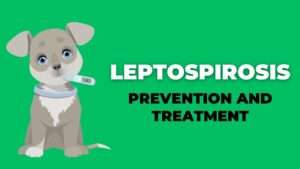As pet owners, we often find ourselves sharing our favorite foods with our furry companions.
Watermelon, with its refreshing taste and high water content, is a summertime favorite for many.
But can dogs indulge in this juicy fruit as well? Let’s explore the ins and outs of feeding watermelon to our canine friends.
Contents Overview
The Nutritional Bounty of Watermelon
Watermelon can be a refreshing treat for dogs, but it’s important to understand its nutritional value. This fruit is high in water content, making it hydrating for pups, especially during hot weather.
Additionally, watermelon contains essential vitamins such as A, B6, and C, which contribute to overall health. However, it’s crucial to remove the seeds and rind, as they can cause digestive issues.
Moderation is key, as excessive consumption can lead to stomach upset due to its natural sugars. Overall, when given in small, seedless portions, watermelon can be a safe and enjoyable snack for your furry friend.
Can Dogs Eat Watermelon Safely?
Yes, dogs can eat watermelon safely in moderation. It’s a refreshing treat for them, especially during hot weather.
However, make sure to remove seeds and rinds as they can cause digestive issues. Additionally, too much watermelon can lead to an upset stomach or diarrhea due to its high water and sugar content.
Benefits of Watermelon for Dogs
Watermelon offers several health benefits for dogs, making it a delightful and nutritious addition to their diet.
Here’s a closer look at how watermelon can positively impact your furry friend’s well-being:
1- Hydration
With its high water content (over 90%), watermelon is an excellent way to keep your dog hydrated, especially during hot weather or after physical activity. Adequate hydration is essential for overall health and helps regulate body temperature.
2- Low in Calories and Fat
Watermelon is low in calories and fat, making it a healthy treat option for dogs watching their weight or on a weight management plan. It provides a satisfyingly sweet taste without the added calories or unhealthy fats found in many other treats.
3- Rich in Vitamins and Minerals
Watermelon contains essential vitamins and minerals beneficial for your dog’s health. It’s particularly rich in vitamins A, B6, and C, which support immune function, eye health, and overall well-being.
Additionally, watermelon provides minerals like potassium and magnesium, crucial for heart health and muscle function.
4- Digestive Health Support
The fiber content in watermelon can aid in digestion and promote regular bowel movements for your dog. Including fiber-rich foods like watermelon in their diet can help prevent constipation and maintain gastrointestinal health.
5- Oral Health Benefits
Chewing on watermelon chunks can help clean your dog’s teeth and freshen their breath. The mechanical action of chewing can help remove plaque and tartar buildup, reducing the risk of dental issues such as gum disease and tooth decay.
However, it’s essential to continue regular dental care practices, such as brushing your dog’s teeth, for optimal oral health.
6- Antioxidant Properties
Watermelon is rich in antioxidants like lycopene and beta-carotene, which help neutralize harmful free radicals in your dog’s body.
These antioxidants have anti-inflammatory properties and may reduce the risk of chronic diseases, supporting overall health and well-being.
7- Improved Skin and Coat Health
The vitamins and minerals present in watermelon contribute to healthy skin and a shiny coat for your dog. Adequate intake of vitamins A and C supports collagen production, which is essential for skin elasticity and wound healing.
Additionally, the hydration provided by watermelon helps maintain skin moisture and prevents dryness or flakiness.
Incorporating watermelon into your dog’s diet can offer a variety of health benefits, from hydration and nutrient intake to support for digestion, oral health, and overall well-being.
However, it’s essential to feed watermelon in moderation and remove seeds and rind to prevent potential choking hazards or digestive issues.
With its refreshing taste and nutritional value, watermelon can be a delicious and healthy treat that both you and your furry friend can enjoy together.
Potential Risks and Precautions
While watermelon can provide numerous health benefits for dogs, it’s essential to be aware of the potential risks associated with feeding this fruit to your furry companion.
Here are some considerations to keep in mind:
1- Seed Consumption
Watermelon seeds can pose a choking hazard for dogs, especially if ingested in large quantities or swallowed whole.
Additionally, seeds can cause intestinal blockages, leading to serious digestive issues. Always ensure that you remove all seeds from the watermelon before feeding it to your dog.
2- Rind Ingestion
The tough green rind of watermelon is challenging for dogs to digest and can cause gastrointestinal upset if ingested.
Avoid feeding your dog the rind of watermelon and stick to offering only the flesh of the fruit.
3- Portion Control
While watermelon is low in calories and fat, feeding it to your dog in excessive amounts can lead to digestive issues such as diarrhea or upset stomach.
It’s essential to practice moderation and limit the amount of watermelon you offer to your dog as a treat.
4- Allergic Reactions
Some dogs may be allergic to watermelon or certain components found in the fruit.
Watch for signs of allergic reactions, including itching, redness, swelling, vomiting, or diarrhea, after feeding watermelon to your dog.
If you suspect an allergic reaction, discontinue feeding watermelon and consult your veterinarian.
5- Diabetes Risk
While watermelon is relatively low in sugar compared to other fruits, it still contains natural sugars that can affect dogs with diabetes or those at risk of developing the condition.
If your dog has diabetes or other underlying health conditions, consult with your veterinarian before introducing watermelon into their diet.
6- Overweight and Obesity
While watermelon is a healthy treat option for most dogs, it’s important to consider your dog’s overall diet and calorie intake.
Feeding too many treats, including watermelon, can contribute to weight gain and obesity, which can lead to various health issues.
Ensure that watermelon treats are included as part of a balanced diet and given in moderation.
7- Gastrointestinal Upset
Some dogs may experience gastrointestinal upset, such as gas or bloating, after consuming watermelon. Introduce watermelon gradually into your dog’s diet and monitor their response.
If your dog experiences digestive issues, reduce the amount of watermelon offered or discontinue feeding it altogether.
By being aware of these potential risks and taking appropriate precautions, you can safely incorporate watermelon into your dog’s diet as an occasional treat.
Remember to remove seeds and rind, feed in moderation, and monitor your dog for any adverse reactions.
If you have any concerns or questions about feeding watermelon to your dog, consult with your veterinarian for personalized guidance and recommendations.
Safe Ways to Feed Watermelon to Dogs
Watermelon can be a delicious and hydrating treat for your dog when served safely.
Follow these guidelines to ensure that your furry friend enjoys watermelon in a way that minimizes potential risks:
1- Remove Seeds
Before offering watermelon to your dog, take the time to remove all seeds from the fruit. Watermelon seeds can pose a choking hazard and may cause intestinal blockages if ingested.
2- Cut into Bite-Sized Pieces
Cut the watermelon into small, bite-sized pieces to prevent choking hazards and make it easier for your dog to chew and digest. Avoid giving your dog large chunks of watermelon, especially if they are small or have a tendency to gulp their food.
3- Feed Only the Flesh
Offer only the flesh of the watermelon to your dog and avoid feeding them the tough green rind. The rind can be challenging for dogs to digest and may cause gastrointestinal upset if ingested.
4- Moderation is Key
While watermelon can be a healthy treat for dogs, it’s essential to feed it in moderation. Too much watermelon can lead to digestive issues or upset stomach. Limit the amount of watermelon you offer to your dog and consider it as an occasional treat rather than a staple food.
5- Monitor for Allergic Reactions
Keep an eye on your dog for any signs of allergic reactions after feeding them watermelon for the first time. Watch for symptoms such as itching, redness, swelling, vomiting, or diarrhea. If your dog shows any signs of an allergic reaction, discontinue feeding watermelon and consult your veterinarian.
6- Frozen Treats
Freeze chunks of watermelon to create a refreshing and hydrating summer treat for your dog. Frozen watermelon chunks can provide relief from the heat and also serve as a soothing treat for teething puppies.
7- Mix with Other Foods
Mix small pieces of watermelon with your dog’s regular food to add variety and flavor to their diet. Alternatively, use watermelon as a tasty topping for their meals to encourage picky eaters to finish their food.
8- Supervise While Eating
Always supervise your dog while they are eating watermelon to ensure that they are chewing it properly and not experiencing any difficulties. If you notice any signs of discomfort or choking, intervene immediately and remove the watermelon from their mouth.
By following these safe feeding practices, you can ensure that your dog enjoys watermelon as a tasty and nutritious treat without any adverse effects.
Remember to prioritize your dog’s safety and well-being when introducing new foods into their diet, and consult with your veterinarian if you have any concerns or questions.
Creative Ways to Serve Watermelon to Your Dog
Now that we’ve established that dogs can safely enjoy watermelon, let’s explore some creative and safe ways to incorporate this fruit into their diet:
1- Watermelon Balls
Use a melon baller to create bite-sized watermelon balls that are perfect for training or rewarding your dog.
2- Homemade Popsicles
Blend watermelon with plain yogurt or coconut water and freeze the mixture in ice cube trays for homemade doggy popsicles.
3- Watermelon Cubes with Mint
Add a twist of flavor by tossing watermelon cubes with fresh mint leaves for a refreshing and aromatic treat.
When to Avoid Watermelon to Dog
Allergies or Sensitivities:
- Avoid if your dog has known allergies or sensitivities to watermelon or its components.
- Watch for signs like itching, swelling, vomiting, or diarrhea.
- Consult your vet if you suspect an allergy.
Diabetes or Blood Sugar Issues:
- Limit sweet fruits like watermelon for dogs with diabetes or blood sugar problems.
- Natural sugars in watermelon can spike blood sugar levels.
- Seek vet advice for managing your diabetic dog’s diet.
Overweight or Obesity:
- Be cautious of calorie intake, even with low-calorie treats like watermelon.
- Excessive consumption can lead to weight gain.
- Monitor weight and consult your vet for treat recommendations.
Gastrointestinal Sensitivity:
- Some dogs may have sensitive stomachs.
- Digestive upset like diarrhea, vomiting, or gas may occur after eating watermelon.
- Opt for gentler treats or consult your vet for dietary advice.
Seeds and Rind:
- Remove all seeds and tough green rind before feeding.
- Seeds and rind can pose choking hazards and cause blockages.
- Safer to avoid feeding watermelon if unable to remove seeds and rind completely.
Medication Interactions:
- Check for any medication interactions or medical conditions.
- Consult your vet before introducing watermelon to your dog’s diet.
During Upset Stomach Episodes:
- Avoid introducing new foods, including watermelon, during upset stomach episodes.
- Stick to bland, easily digestible foods recommended by your vet.
- Prioritize your dog’s safety and consult your vet for any concerns or questions.
Safe and Suitable Alternatives of Watermelon for Dogs
For dogs who cannot enjoy watermelon or need alternative treats, there are safe and suitable options available.
Consider offering your furry friend small pieces of apple or banana as a tasty and nutritious snack. These fruits are low in calories and rich in vitamins, making them ideal for occasional treats.
Additionally, vegetables like carrots or cucumber can provide a crunchy texture and added hydration without the risk of sugar content found in fruits.
Always ensure that any treats you offer are appropriate for your dog’s dietary needs and preferences.
Bottom Line
In conclusion, watermelon can be a safe and healthy treat for dogs when served appropriately and in moderation.
Packed with hydration, vitamins, and antioxidants, watermelon offers numerous health benefits for our furry friends.
Remember to remove the seeds and rind, introduce watermelon gradually, and monitor your dog for any adverse reactions.
With proper preparation and moderation, you can share the simple joy of watermelon with your canine companion and keep them happy, hydrated, and healthy all summer long.
So go ahead, slice up some watermelon, and treat your pup to a taste of summer bliss!

Introducing Chef Scot Hill, the founder of Dog Star Nutrition LLC, also known as Woof Creek Dog Wellness. As an Advanced Canine Nutrition Specialist, Scot is dedicated to revolutionizing dog nutrition, ensuring our furry friends receive the nourishment they deserve for optimal health and well-being.



































+ There are no comments
Add yours